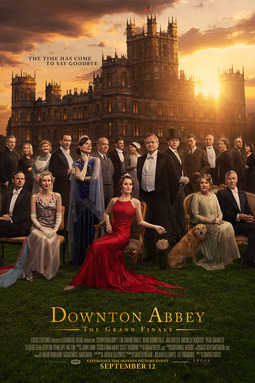“Wuthering Heights”
Posted on February 11, 2026 at 2:40 pm
C| Lowest Recommended Age: | Mature High Schooler |
| MPAA Rating: | ated R for sexual content, some violent content and language |
| Profanity: | Some strong language |
| Alcohol/ Drugs: | Drinking and drunkenness |
| Violence/ Scariness: | Some peril and violence, a hanging, medical crisis, sad deaths |
| Diversity Issues: | Class diversity |
| Date Released to Theaters: | February 13, 2026 |
Emerald Fennell’s new film is more of a a sexy perfume commercial than a version of the classic Emily Bronte novel. The title and character names are from the book as are the windswept moors that act as setting and metaphor. But the book is not a romance; it is a story of obsession, repression, grief, and generational trauma. This version changes some of the relationships and, significantly, backstories to center the passionate love affair between Catherine Earnshaw (Margot Robbie) and Heathcliff (Jacob Elordi).
The movie begins with a crude joke. We hear what sounds like a sexual situation, with bedsprings squeaking and increasingly heavy breathing. And then we see that the source of the sounds is….the last strangled breaths of a man who is being hanged. The crowd is watching it as great entertainment. And a young girl (Charlotte Mellington as young Catherine) is mesmerized.
Catherine lives with her dissolute, brutish father (Martin Clunes) in an isolated, once-grand home. There are a few shabby servants and a between-classes woman named Nelly (Hong Chau), the out-of-wedlock daughter of a nobleman, who serves as Cathy’s caretaker. Mr. Earnshaw impulsively brings home a boy he rescued from being beaten. He has no name, so Catherine dubs him Heathcliff (Owen Cooper of “Adolescence” as young Heathcliff), after her late brother.
Catherine and Heathcliff have an instant, deep connection, but it is not entirely reciprocal. They are a lesser version of Buttercup and Wesley; she takes advantage of him and teases him, he is never anything but devoted and sincere, and they never have any kind of honest conversation about their feelings or prospects. She sulks and flounces. When she makes them late for dinner, he takes a beating from Mr. Earnshaw by lying that he was responsible.

The tiny population of the home that gives the book and the movie its name is all the people in this isolated area of the moors until the wealthy Edgar Linton moves five miles away with his ward, Isabella. Fennell is always superb at giving us striking, spectacular images that tell us a great deal about the characters, and the Linton home is one of Production Designer Suzie Davies’ most stunning achievements. Catherine (now played by Robbie) looks almost feral as she goes through a garden wall to enter the Linton’s exquisitely civilized space.
Soon, Heathcliff leaves and Catherine is married to Edgar. She now has magnificent jewels and a series of fabulous gowns in gorgeous settings, a sharp contrast to the wildness of the moors. Just in case we don’t get the point, Isabella makes a doll version of herself and Catherine and puts them in a dollhouse version of the Linton mansion, which itself, like an infinite regression, has a miniature version so the dolls can play with their own dollhouse. Oh, and the Catherine doll has Catherine’s own hair, taken from her hairbrush.
Fennell has some wild details, including Edgar having Catherine’s bedroom painted the color of her complexion, down to her freckle, and Catherine peeking through the floorboards to watch her servants have sex in the stable, using the horse’s bridle as a sex toy. And, again, a departure from the book, when Heathcliff returns, years later, he and Catherine have an affair. Perhaps the most significant departure is eliminating several characters and the multi-generational elements of the story. Or maybe it is when characters in a sexual relationship of domination and humiliation, and the one who is dominated end up chained like a dog and forced to communicate by barking. There’s no reason to believe these people care about each other beyond the fact that there are literally no other people around.
Pretty people in beautiful settings yearning, hurting each other, having sex — eye candy, titillation, but very superficial. At least a perfume commercial is over quickly.
Parents should know that this movie has very explicit sexual situations and references including domination and bondage, an alcoholic and abusive parent, sad deaths, strong language, drinking and smoking.
Family discussion:
If you like this, try: the book and the other movie versions, especially the one starring Sir Laurence Olivier.





